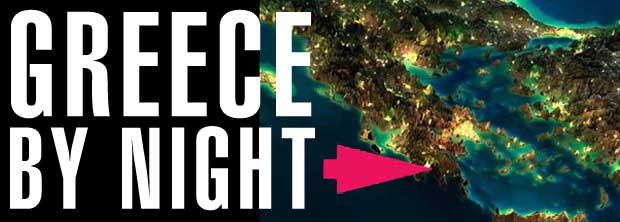The Marfin Bank arson attack
The Marfin Bank arson attack, also known as the Marfin disaster, was an anarchist attack that took place on May 5, 2010, in Athens, Greece. The attack was on a branch of Marfin Bank located in the city center, and resulted in the deaths of three bank employees who were trapped in the building. The attack was carried out by a group of individuals believed to be members of an anarchist organization, who set fire to the bank using gasoline bombs and other incendiary devices.
The attack occurred during a period of widespread civil unrest in Greece, which was caused in part by the country's economic crisis and austerity measures imposed by the government. The attack on Marfin Bank was one of several similar attacks that took place in Athens and other cities during this period, and was widely condemned by political leaders and the public.
The Marfin Bank arson attack is remembered as a tragic event in Greek history, and is seen as a reminder of the dangers of political violence and extremism. In the years since the attack, there have been calls for greater efforts to combat terrorism and to promote dialogue and understanding among different groups in Greek society.
April 5, 2021
Re-investigation of the Marfin arson case
Story at Parapolitika [Greek]
May 9, 2020
Mitsotakis lays wreath outside former Marfin bank building
Story at Barrons [English]
July 24, 2013
Greece bankers guilty over Athens arson deaths - BBC
"Three bank officials in Greece have been given jail sentences of up to 10 years for failing to protect the lives of staff during a fatal arson attack by anti-austerity protesters in May 2010. Three Marfin Bank staff members died in the attack on a central Athens branch, including a pregnant woman. No-one has yet been convicted of causing the fire."
May 6, 2010
Somber mood prevails in news reports following deaths
Kathimerini - An editorial ("The road to destruction") asks many of the same questions that have been asked for years as the reality of the financial crisis has become more real. A difference made apparent by the deaths of May 5 is that the idea of a complete crash of the Greek system; social, political and financial, is now being considered.
"Greece is at the most crucial point of its post-1974 history and whether we destroy ourselves or not, whether we go bankrupt or not, depends not just on our political leadership, but also on every single one of us individually and collectively."
The Greek tolerance for political violence might have reached its limit. Neo Kosmos has a summary report on the events around the three deaths:
"The three deaths, two women and one man, appear to be from asphyxiation as the building was set alight from Molotov cocktails. This is an unprecedented development that has shocked the country and likely to mark a watershed regarding the use of petrol bombs by protesters. Most of the clashes by late afternoon were by splinter groups (some of whom smashed shop windows in various parts of the city centre) much to the disappointment and anger of the majority of demonstrators who were hoping for a firm and unequivocal expression of anger and disillusionment at recent developments."
May 5, 2010
Mass strikes, Arson and Deaths in Athens as Austerity Talks Continue
The protests against the Greek government austerity plan turns to violence and murder when a firebomb assault on a central Athens area bank killed three people. Between ten thousand to one-hundred thousand people gathered in Athens for the planned May 5 protest demonstration. Wall Street Journal reports on the deaths and the eight fires set downtown:
"The three died in a fire at central Athens' Marfin Bank and four other people were seriously injured there, fire department officials said. Panagiotis Papapetropoulos, a police spokesman, said eight fires in Athens office buildings and bank buildings had been brought under control. He offered no further details on the fatal fire as the investigation was just beginning.
Greece's bank workers union, OTOE, said it would stage a 24-hour strike Thursday in memory of three people who were killed. The union said the three were employees at Marfin Bank.
Greece's government, facing spiraling borrowing costs and a debt payment this month that it can't meet, is scrambling to pass through legislation implementing a three-year austerity and reform program it agreed to as part of the loan deal with the EU and IMF. Parliament is expected to vote as soon as Thursday on the measures.
...According to unconfirmed estimates, the number of protesters in Athens could have topped 100,000. Police officials put the figure at 20,000, while the GSEE and Adedy unions said a total of 50,000 took part in their protests alone. The communist-backed PAME union, also on the streets Wednesday, drew at least an additional 10,000 demonstrators.
"This rally was double the size of the largest rally that has ever been held in Greece," said Spyros Papaspyros, president of Adedy, a civil-service umbrella union. "Tomorrow afternoon, we will also be holding a protest in front of parliament, and if the government doesn't listen, there will be more strike action next week."
The front page of the Kathimerini news site headlined that the deaths were from a molotov cocktail firebomb. Kathimerini also carried estimates of up to 100,000 people active in the demonstrations of May 5. Read babelfish english translation of Kathimerini pages.
The web site Monsters and Critics has a large gallery of on-the-street photography showing Greek police trying to deal with the riots and protests. Story is credited to James Wray, photos credited to EPS/Panagiotis Moschancdreou. The site says over 20 people were hospitalized due to the firebomb attack.
"Murder!" Says Papandreou
The Associated Press / Google quotes Papandreou as angrily denouncing the violence for the deaths that occurred, declaring them 'murders. The AP story is credited to Derek Gatopoulos and Elena Becatoros:
"A demonstration is one thing and murder is quite another!" Prime Minister George Papandreou thundered in Parliament during a session to discuss the spending cuts he announced Sunday — measures even the IMF has called draconian. Lawmakers held a minute of silence for the dead — the first deaths during a protest in Greece since 1991.
A senior fire department official said demonstrators prevented firefighters from reaching the burning building, costing them vital time.
"Several crucial minutes were lost," the official said, visibly upset. "If we had intervened earlier, the loss of life could have been prevented."
Saw this note at the Living in Greece Blog:
"Rioters felt justified in burning Greece when police killed a boy in 2008. What shall we do to them, now that rioters have killed three?"
Are the violent images accurate?
This article at the UK Guardian by Kat Christofer suggests not taking the violent images being snapped by the international press as being the true story of what is going on in Greece:
"The photos and footage often accompanying stories about strikes in Greece can give the impression that revolution is under way. But beneath the hoods and helmets of stone-throwing youths are not militants, leftwingers, rightwingers, anarchists or even protesters. They're troublemakers, not unlike football hooligans, who grab the spotlight by intentionally hovering on the fringe of otherwise peaceful demonstrations to engage police in recreational violence, attack bystanders, throw Molotov cocktails and sledgehammer an innocent shopkeeper's livelihood, then retreat at the first sign of rain, cold or defensive action. Hardly heroic or hardcore, but a few minutes of violence make more exciting coverage than hours of pensioners carrying signs."
"...In a country dependent on tourism, which accounts for 18% of GDP, what trade unions have accomplished by striking is worse than nothing. Statistics show that 1.8 million tourists steered clear of Greece compared to 2009, either choosing a neighbouring Mediterranean country or staying home, resulting in €1.6bn in lost revenue."
You will see Amazon links on this web site because I am an Amazon affiliate. I earn from qualifying purchases.
International Real Estate
Buying Real Estate Overseas For Cash Flow (And A Better Life): Get Started With As Little As $50,000
Published by Wiley, 1st edition August 11, 2020, 240 pages
Try Prime Discounted Monthly Offering
Greece: Biography of a Modern Nation - AMAZON - Published March 2020 - 600 Pages



Greece's Golden Visa program
